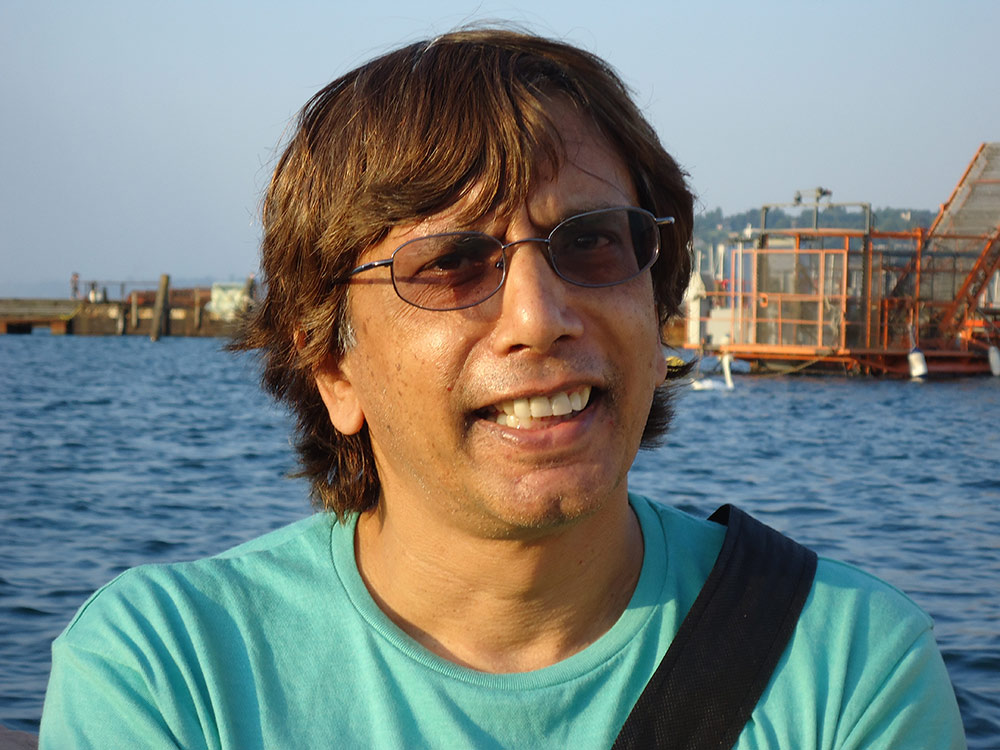Research reveals deep East-South connection


Professor Rajend Mesthrie has been awarded a BRICS-related NIHSS grant for joint India-South Africa research on language and culture. Mesthrie is Professor of Linguistics in the School of African and Gender Studies, Anthropology & Linguistics, at the University of Cape Town. He holds one of the four DST SARCHi Research Chairs in the Faculty of Humanities.
Many Indians living in South Africa are descendants of families who arrived during the late nineteenth and early twentieth centuries to work as indentured labourers in the sugarcane industry. While previous linguistic research (including Mesthrie’s own on Bhojpuri-Hindi) has focused intensively on language adaptation and change in the sugar plantations of KwaZulu-Natal, Mauritius, Fiji and the Caribbean, less attention has been paid to the linguistic practices of parallel groups of Indians arriving as “free” traders. The current project aims to fill this knowledge gap. Mesthrie will be working alongside Professor Sonal Kulkarni-Joshi from the Department of Linguistics at Deccan College Postgraduate and Research Institute in Pune (India) as well as with two post-doctoral fellows from Gujarat State University, Ahmedabad (India). The project aims to document two Indian languages that have been in South Africa for over 125 years - Kokni (or Konkani) and Gujarati. According to Mesthrie, Kokni is not well known outside Cape Town, but has an important presence in some parts of the city. “Gujarati is better known as the language of Mahatma Gandhi's political and journalistic writings that began in South Africa, including the anti-colonial classic Hind Swaraj ('Indian self-rule'). Trans-national community linkages form an important facet in the study of the South African versions of these two languages,” says Mesthrie. “The project focuses largely on oral histories of migration and settlement; coupled with professional linguistic analysis of changes in the South African versions of these languages. In addition, it will also build a corpus of written materials of a literary and political nature and of family letters in the languages concerned.”
Mesthrie says that the grant will enable a more meaningful understanding of South–South migrations under British colonialism and their linguistic consequences. The research funding is administered by the National Institute for the Humanities and Social Sciences, South Africa (NIHSS) and the Indian Council for Social Science Research (ICSSR). The purpose of the grant is to facilitate an exchange of ideas between researchers and academics based at BRICS universities and research institutes leading to policy recommendations in their emerging economies. It is valued at R690 000 plus, an equivalent in Rupees (in India) for a period of two years.
Mesthrie is an international specialist in the field of general linguistics, historical linguistics, and sociolinguistics. He currently teaches undergraduate and postgraduate courses in acoustics and accent variation in a multilingual society and has recently provided supervision in the field of language contact and variation for languages like Chasu (of Tanzania), Luhya (of Kenya), Chichewa (of Malawi), Town Bemba (of Zambia) and other African languages. His earlier work covered a range of languages including Bhojpuri-Hindi, English dialects, Fanakalo pidgin, second language varieties of Zulu, Tamil in KwaZulu-Natal and English-Afrikaans code switching in the 19th century Cape. His more recent work on South African youth languages like Tsotsitaal and on a degree of deracialisation among the middle classes has gained international recognition,
In 2016, he was invited to give the annual Martin Luther King Memorial lecture at the University of Michigan (Ann Arbor). His speech focused on the potential of sociolinguistics to unlock social change "on the ground”. Mesthrie is one the country’s A-rated researchers, the highest rating from the National Research Foundation (NRF) awarded for the high quality and impact of an individual’s recent research outputs. He is also the President of the International Congress of Linguists, to be held in Cape Town in 2018.